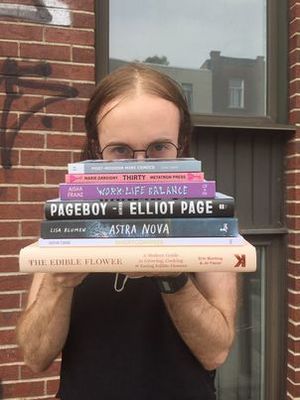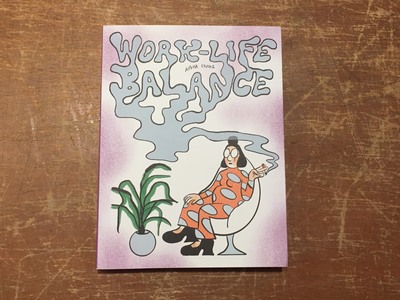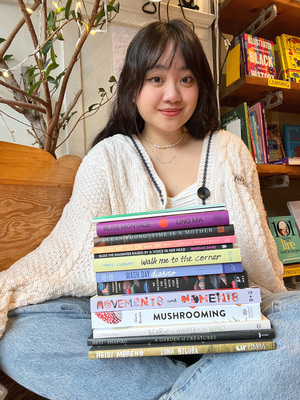This Shelf Belongs to... Marcela Huerta
November 2, 2017

All of Marcela’s picks will be 15% off for the month of September. Here’s a sneak peek of what you’ll find on her shelf:
1. Open Veins of Latin America by Eduardo Galeano
An absolute must-read for anyone learning about the effects of imperialism and colonialism in South America. This incredible and historic book was written in the early '70s, when political coups and repressive right-wing military dictatorships ran rampant in Central and South America. Galeano argues that early European colonization of gold, sugar (and indigenous bodies...) led to a "structure of plunder" still present today.
2. Slow Lightning by Eduardo C. Corral
A feverish and electric book of poems about the experiences of a Chicano, gay man. I read this book on a train back from New York during a sobering year that has served to remind folks of how little white supremacist structures and systems are set up to help about immigrants and marginalized communities. The stark imagery Eduardo creates, the intrinsic spirituality, the heat, all so so amazing.
3.Clandestine in Chile: The Adventures of Miguel Littin by Gabriel Garcia Marquez
The incredible true story of a filmmaker exiled from Chile during the coup who returns to his country in 1985 disguised as an Uruguayan businessman, hellbent on making a film to expose Pinochet's repressive rule to the global community. Littín tells his story to none other than Gabriel García Márquez, who captures the terror, the drama, and that classic deadpan Chilean sense of humour.
4. Belleza y Felicidad: Selected Writings of Fernanda Laguna and Cecilia Pavon
I'm obsessed with Fernanda Laguna and Cecilia Pavon. I love the intimacy and freshness of their work, their humour and wisdom. We should all be so lucky as to write collaboratively with our best friends.
5. I Know Why the Caged Bird Sings by Maya Angelou
If you need to be told why you should read Maya Angelou, I'm not the one. Just do it. I will say that I felt like the ending of this incredible book punched me in the gut and made me reassess elements of my writing that dealt with my mother. Angelou's unparalleled observational skills, her tenderness, and the poetry she brings to memoir are life-changing. I too am tenderhearted, and Angelou's words helped heal a part of me I didn't know needed healing.
6. Revulsion: Thomas Bernhard in San Salvador by Horacio Castellanos Moya
I found this book stressful in a way I have never experienced before, for your information!! An expat returns, post-exile, to El Salvador for his mother's funeral. The book takes place from 5–7pm that evening, in a single paragraph, as he sits with Castellanos Moya ranting to his heart's content. Vega (the expat in question) is a prickly, sour, bitter old man, but he holds you rapt with his delicious gossip. He reminded me of my dad in an almost paralyzingly painful way.
7. The Complete Stories by Clarice Lispector
Imagine being as good at writing short stories as Clarice Lispector was. The first time I read Clarice Lispector was in a book club (where I got to know fellow Metatron writers Alex Manley and Jay Ritchie), and now I pick this book up whenever I need to be reminded of what the structure of an innovative short story looks like. My favourites are "A Chicken" and "The Foreign Legion" but I'm always open for more favourites, tell me yours!
8. Islands of Decolonial Love by Leanne Simpson
Restorative and beautiful, these stories revolving around the lives of indigenous women are deeply moving. They are surviving but they are trying to thrive, despite a world actively trying to unravel them. Don't forget to listen to the audio component, for the full experience.
9. Chelsea Girls by Eileen Myles
I read Chelsea Girls before I read any of Eileen Myles's poetry, strangely! This intro to their style was jaw-dropping, an exercise in form and narrative I've not often seen in memoir. It tracks Myles from a Roman Catholic upbringing in the 1950s and ’60s through the discovery of drugs, sex, and poetry. It has one of the most iconic revelations of alcoholism in the family I've ever read.
10. Don't Go Where I Can't Follow by Anders Nilsen
All my friends are probably tired of hearing my story of crying so hard while reading this on a plane on the way back from a school trip that I nearly burst a blood vessel in my eye. At the time, I had never experienced grief. Now I have. I don't know that any book will ever pain my soul in the same way this book does; it captures the power of loss in an unforgettable way.
BONUS! Brief Wondrous Life of Oscar Wao by Junot Diaz
Because my school system was not particularly adept at teaching any histories that related to immigrants, and because we literally did not have a single book by a person of colour on our syllabus for my entire high-school education (THIS IS A FACT) reading this book as an adult completely changed my life. I had no idea military coups had happened in other countries (I was that sheltered). I no longer felt alone. I no longer felt crazy. This book made me want to write.


